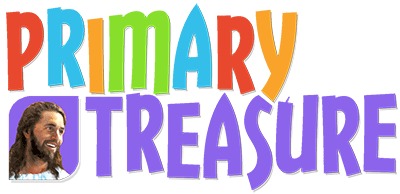
Building a New Mission
For a few weeks, Dad went back and forth from the mission house to the new mission site all by himself. He had the Indians at the new site help him clear the land and build a new mission house. Once the house was built, Dad would have everyone move out to the new mission.
Dad wanted to call the new mission “Waki Paka” since he thought that meant “good place.” When he tried to tell the Indians about the name, they looked very puzzled. Dad knew that waki meant “good” and paka meant “place,” and he didn’t understand why the Indians were surprised when he called the new mission “Waki Paka.” Then one Sabbath he was preaching about heaven, and to his surprise the Indian who was translating said, “Waki paka!” Dad decided that maybe they had better call the new mission some other name. Since it was the nearest mission to Mt. Roraima, it became known as Mt. Roraima mission.
Finally the new house was ready, and the family packed to move again. They loaded the paddle boats and paddled up the river to the new mission. When Mother saw the new jungle house, she looked like she might just sit down and cry. It was built up off the ground like all the other jungle houses, but this house had a rough bark floor instead of good smooth wood. The curved bark pieces were nailed down over the support poles, and you could look right down between the cracks and see the ground below. Once they had moved in the boxes and furniture, though, Mother decided this house wasn’t much worse than the other house. But she did want Dad to cut a hole in the wall over the sink area.
“I think it needs a window there,” she explained.
Dad wasn’t sure that it needed a window, but he cut it for Mother anyway. At least it wasn’t very hard to make windows in the new house. Dad just took a saw and cut a hole the size that Mother wanted!
The four girls again shared one room, this time with a double bunk bed. Dad had made it from poles that were all tied together with vines and strips of cowhide.
The mission house was a lot closer to the Indian village. Leona hoped she would be able to make friends with the little girls at this village.
Mother started school the next day, teaching English to the Indian children.
At worship that evening, Dad told the girls more about the Davis Indians.
“A long time ago,” Dad began, “there was a young Arekuna Indian chief named Chief Auku. As he grew up, he was unhappy with the way his people were living. He felt in his heart that things should be different. He wished there were someone who could teach him. Then one night he awoke out of a sound sleep and was astonished to see a bright, shining figure standing in his little hut.
“ ‘Don’t be afraid,’ the shining figure spoke with a clear, soft voice in the Indian language. ‘I have come to help and instruct you.’
“Then the shining figure told Chief Auku the story of the world, from the seven days of Creation to the story of Christ’s life and death to save sinful people. After that the chief was told how he could instruct his own people to live so that they could be saved also. For someday soon, Christ was going to return to take His chosen people home to a new earth. As the being described the New Jerusalem, Chief Auku felt he could hardly wait to go there. He wanted to rush right out and help his people prepare to be ready.
“Chief Auku had more than one vision from his heavenly helper. Everything the shining being told him, the chief would tell to his people. Finally the chief was told that a white man would be coming to bring more knowledge and instruction for them. The villagers anxiously waited for him to come.
“For many years the Indians waited. Chief Auku was getting to be an old man. They knew that someday a white man would come who had the same message as the angle.
“While the Indians waited, a missionary named Elder Davis heard about the Indians in the jungle who wanted to know about Jesus. Elder Davis made a couple of trips into the jungle to try and find these Indians. Twice he had to turn back without reaching the right village. Finally he reached Chief Auku’s village, and on June 25, 1911, Elder Davis established a mission station near the foot of Mt. Roraima.
“But Elder Davis didn’t get to preach for very long. A short time later he died and was buried there at the foot of the mountain. The Indians remembered the little bit Elder Davis had taught them. They gathered together every evening and recited the songs and stories he had told them. Some of them had even learned the English alphabet, and they recited it every evening, just like a prayer! Since Elder Davis gave his life to bring the message to these Indians, they later became known as the ‘Davis Indians.’ ”
“Was that God’s plan for Elder Davis’s life?” Leona looked worried.
“Well, it is never God’s plan that anyone dies,” Dad replied. “You see, death is God’s enemy too, but God knows He has already beaten the enemy. He knows that Elder Davis will someday be in heaven with Him.”
“I hope God never asks me to do something hard or scary like that,” Leona said. “I don’t think I could do it.”
“Of course you could,” Dad reassured her. “God will never ask you to do something that you can’t do with His help. It may seem hard or scary at first, but that’s when you need to ask God for help so that you can do what He wants you to.”
Viola asked. “What happened after Elder Davis died?”
“It was a long time before anyone else came to teach them, but finally the Cotts came out and taught for quite a few years.” Dad smiled, then went on. “And now we are here to help them.”
“The little Indian girls seem so shy,” Leona said. “They don’t seem to want to be friends with us even if we are here to help them.”
“Well, give them some time,” Dad told Leona. “I’m sure if you continue being friendly and helpful, you soon will have some friends.”
A few days later, Leona and Muriel met some of the Indian girls on a path coming back from the creek.
Leona smiled and said, “Hi.”
One of the girls smiled back.
Encouraged, Leona pointed to herself.
“Leona,” she said, pointing to herself again.
The Indian girl nodded. “Me Martha,” she said.
Leona looked at Muriel with a puzzled frown. “That doesn’t sound like an Indian name,” she whispered.
“It probably isn’t,” Muriel answered. “The Indians all use English names around us. They think Kenaima will get them if they say their own name.”
Leona had heard about the Indians’ Kenaima. It was sort of an evil spirit, devil, and ghost all rolled into one. She had seen the frightened looks on the Indians’ faces whenever anyone mentioned Kenaima. Of course no one could say that they had ever seen Kenaima, but that didn’t matter. Everyone was afraid that some bad thing would happen if Kenaima were bothered. Leona wasn’t afraid of Kenaima, though. She knew that Jesus was stronger than any devil spirit, and she trusted Him to take care of her.
Leona pointed at the girl. “Who named you Martha?”
Martha smiled. “Mama Cott,” she said.
“So what is your Indian name?”
Martha just smiled again and shook her head.
“You shouldn’t pester her,” Muriel advised. “I told you she wouldn’t say her own name.”
But Leona continued. “Don’t you believe in Jesus now?” she asked.
Martha nodded her head.
“Do you think Jesus is stronger than Kenaima?” Leona persisted. “You know that Jesus says we don’t have to fear any evil when we believe in Him.”
Martha nodded her head again.
“All right, so what is your name?” Leona asked.
“Martha.”
“No,” said Leona stubbornly. “What is your Indian name?”
Martha shook her head, this time without smiling. Then she turned with a stiff back and marched toward the Indian village.
“I told you not to pester her,” Muriel said. “Now she won’t talk to you at all.” Leona turned sadly back toward the mission house. She wondered why it seemed so hard for her to make friends with the Indians.





